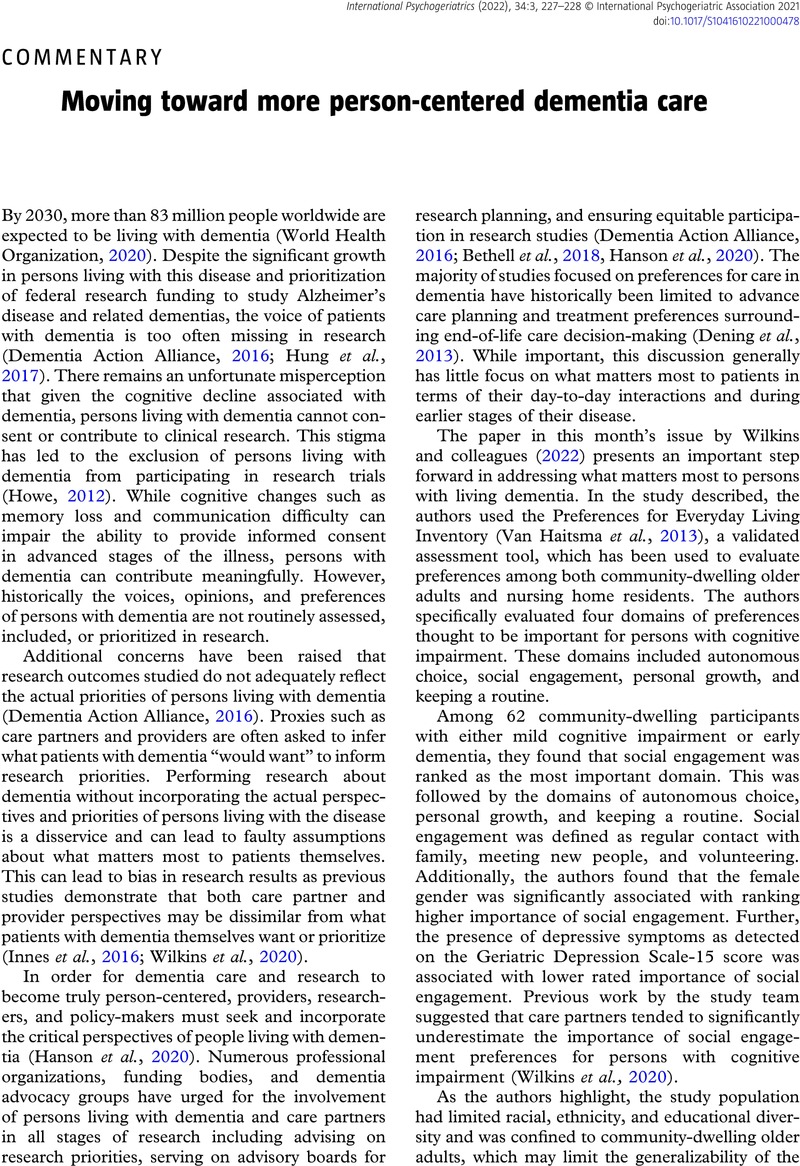Crossref Citations
This article has been cited by the following publications. This list is generated based on data provided by Crossref.
Hirt, Julian
Beer, Thomas
Cavalli, Stefano
Cereghetti, Stefano
Pusterla, Elia R. G.
and
Zeller, Adelheid
2024.
Recruiting Persons With Dementia: A Systematic Review of Facilitators, Barriers, and Strategies.
American Journal of Alzheimer's Disease & Other Dementias®,
Vol. 39,
Issue. ,
de Wolf-Linder, Susanne
Kramer, Iris
Hersperger, Martina
Schubert, Maria
Bächi, Sonja
Stolz, Monika
Wolverson, Emma
and
Ramsenthaler, Christina
2024.
Meaningful patient and public engagement in dissemination—embedding co-production in dementia research.
Frontiers in Dementia,
Vol. 3,
Issue. ,



